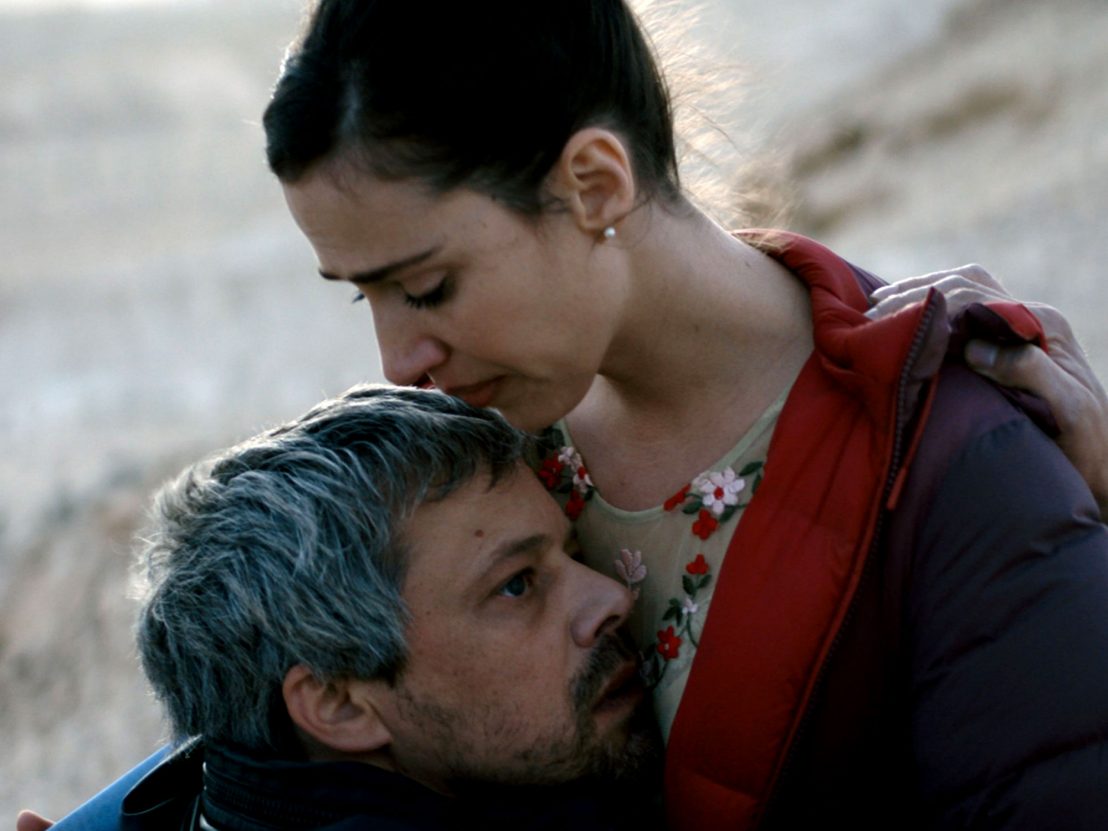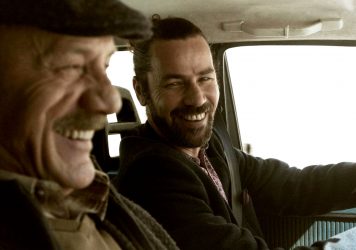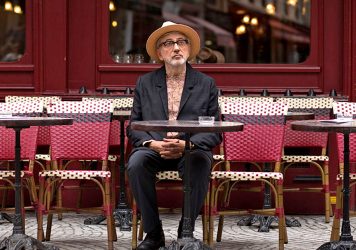
Israeli filmmaker Nadav Lapid serves up a spiky, intelligent drama about conflict and reconciliation.
Nadav Lapid won the Golden Bear at the Berlin Film Festival in 2019 for Synonyms, a dramatic and absurdly comic recreation of his attempts as a young man to leave his Israeli identity behind. He arrives in Paris naked, refusing to speak Hebrew or talk to his parents back home, yet his national identity cannot be shucked off so easily, for every new person he meets projects onto him their own vision of Israel.
Ahed’s Knee once again grapples with the existential angst of wanting to disown a place that made you. As Lapid said in a recent interview with AFP’s Eric Randolph, “In the end, you have exactly the same diseases that you are fighting against.”
Y (Avshallom Pollak), a filmmaker based in Tel Aviv, takes a break from casting his new feature to fly to a tiny town in the Arava, a sparsely-populated desert region, in order to introduce a previous work. The event has been organised by an earnest and ambitious young woman named Yahalom (Nur Fibak), a local employee of the Ministry of Culture. Y is already preoccupied by a personal matter when she presents to him a form and says he must tick the subjects that he plans to discuss. These include ‘The Jewish diaspora’ and ‘The Holocaust and its consequences’ but not ‘conflict’ or ‘the occupation’, a fact which causes Y to spiral.
Lapid was once a poet – indeed, the poems he wrote as a child were recycled for 2018’s The Kindergarten Teacher – and there is an undeniable poetry to the way he shoots. For all the gravity of his subject, there are also sequences of virtuoso playfulness delivered in a kinetic style. Lapid utilises camera movement and music to express pent-up energy on both a stylistic and character level. In one scene Y walks through the desert listening to music on his headphones. The camera spins above him as he tries to thrash out his ambivalent feelings about belonging to the Israeli culture machine and the personal burden he is carrying.
Most of the film’s key ideas are made explicit in the conversations between Y and Yahalom. Pollak carries himself like a jaded rock star, one who has reached the pinnacle of his powers and seen how little difference it makes to anything important. Fibak is winsome and charming, Lapid writing her as fully human rather than a strawman ghoul. It is this complex humanity that informs the film’s sensitive and surprising climax.
Viewers watching in the hope of finding a renouncement of Israeli violence against Palestine will be gratified by a speech that Y gives in the final third. Yet Ahed’s Knee is fundamentally a work of art rather than politics. Lapid channels his despair over whether the two can cohere with a poet’s awareness that people need each other – even when the other represents an institution that one thoroughly abhors.
Little White Lies is committed to championing great movies and the talented people who make them. But to keep going, and growing, we need your support. Become a member today.
Published 8 Jul 2021

Corruption reigns free on the Israel/Palestine border in this intriguing feature from Samuel Maoz.

This quietly compelling drama from Annemarie Jacir follows a father and son delivering wedding invitations.

Palestinian filmmaker Elia Suleiman goes in search of parallels to his homeland in this charming road movie.